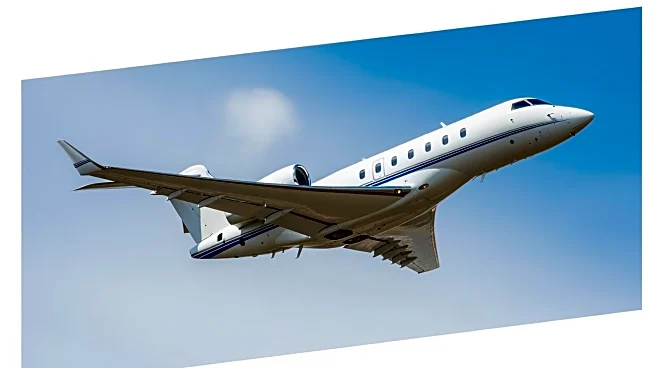What's Happening?
Russian President Vladimir Putin's potential travel to Budapest for a summit with U.S. President Trump is facing logistical challenges due to EU airspace restrictions. Putin's specially modified Il-96
plane, known as the 'Flying Kremlin,' requires special permission to fly over EU member states, as Russian aircraft are currently banned from EU airspace. The summit, aimed at discussing issues such as prisoner exchanges and the return of children, is not yet confirmed but is anticipated to occur within the next two weeks. Hungary, a NATO member and one of Putin's closest allies in the EU, has expressed willingness to facilitate the meeting. However, the route Putin's plane would take remains uncertain, with potential paths through Turkey, Bulgaria, and Romania being considered.
Why It's Important?
The potential summit between President Trump and President Putin in Budapest holds significant geopolitical implications. It could influence the ongoing conflict in Ukraine and impact international relations, particularly between the U.S., Russia, and EU member states. The EU's decision to allow or deny airspace access for Putin's plane could set a precedent for future diplomatic engagements involving Russia. Additionally, Hungary's role as a facilitator highlights its unique position within the EU and NATO, potentially affecting its relations with other member states. The summit's outcome could also impact global energy markets, given Russia's role as a major oil supplier and the ongoing sanctions affecting its economy.
What's Next?
If the summit proceeds, it could lead to new diplomatic initiatives or agreements between the U.S. and Russia, particularly concerning the Ukraine conflict. EU member states will need to decide on granting airspace access, which could involve complex negotiations and potential political ramifications. The international community will closely monitor the summit's developments, as any agreements reached could influence global security and economic dynamics. Additionally, reactions from Ukraine and other stakeholders will be critical in assessing the summit's impact on regional stability.











